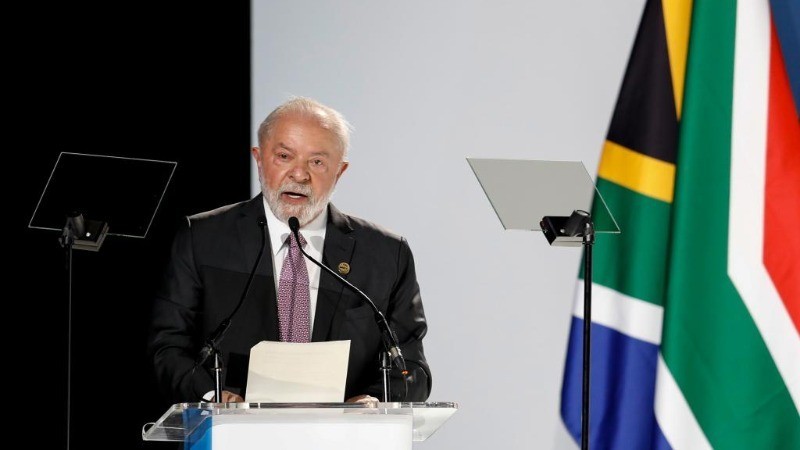Latin American and Caribbean states unite to overcome challenges
The 9th Summit of the Community of Latin American and Caribbean States (CELAC) recently concluded in Honduras with a commitment to promote regional unity and cooperation to address global economic fluctuations.
 |
| Brazilian President Lula da Silva |
Latin American countries are striving to find opportunities to transform themselves amidst numerous challenges, including massive migration waves, persistent poverty and inequality, and the impact of policy changes by their partners.
During the 9th CELAC Summit, Brazilian President Lula da Silva warned about the current risks to the global economy.
Honduran President Xiomara Castro noted that countries cannot continue on their own separate paths as the world reshapes, while Colombian President Gustavo Petro called for nations to raise a higher sense of unity.
The summit agreed to promote regional connectivity initiatives, such as developing renewable energy networks and cross-border fibre optic systems to strengthen economic links, thereby reinforcing multilateral cooperation in the Latin American and Caribbean region.
The message of internal unity was highlighted as Latin America urgently seeks to diversify its agricultural export markets following the announcement of new US tariff policies.
Brazil, Colombia, Ecuador, and Peru export significant products including coffee, fruits, and flowers to the US market. In 2024, export values in Latin America and the Caribbean increased by 4.1% compared to 2023.
To mitigate the impact of global trade disruptions, Bolivia announced efforts to seek new markets within the BRICS group of emerging economies.
Chair of the Caribbean Community (Caricom) and Barbadian Prime Minister Mia Mottley, urged regional countries to boost local agricultural production, develop light manufacturing industries, and enhance cooperation with Africa and traditional partners.
Despite these challenges, the interest in connecting and increasing investment in Latin America by many countries offers opportunities for this resource-rich region.
Foreign direct investment (FDI) in Latin America reached over 184.3 USD billion in 2023, exceeding the decade's average, with Mexico being a major magnet for foreign investment.
The European Union (EU) is one of the largest FDI investors in Latin America, accounting for 22% of total FDI in the region. Russia, India, and Iran are also expanding their presence in this promising area through numerous diplomatic visits and cooperation commitments. This is seen as a key factor in helping Latin America revive its economy and reduce poverty and social inequality.
Poverty, a chronic affliction in the region, has worsened due to natural disasters and conflicts.
According to the World Bank, 25% of the population in Latin America and the Caribbean live in poor households, and the trend of poverty reduction has slowed over the past nine years. This region experiences severe income inequality, surpassing sub-Saharan Africa, North Africa, or the Middle East.
Latin America and the Caribbean are also vulnerable to climate change impacts. Lola Castro, the World Food Programme (WFP) Director for Latin America and the Caribbean, noted that up to 36% of small farms surveyed in rural Honduras and Guatemala face food insecurity due to harsh weather conditions.
Regarding migration, the US's recent tightened immigration policies have dashed the American dreams of many migrants from Central and South America. A wave of “reverse migration” back to their homelands is occurring, placing significant pressure on regional countries to ensure orderly, legal, humane, and safe repatriation processes.
The consequences of pandemics, conflicts, natural disasters, and global trade tensions affect the economic and social development of all nations, including Latin America and the Caribbean. However, with a spirit of enhanced internal unity and continuous expansion of partnerships, Latin America is expected to gradually overcome its current challenges.
NDO





READER COMMENTS